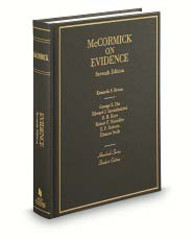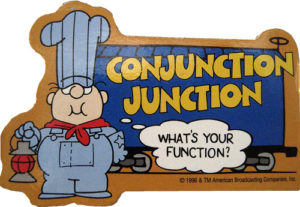 It’s that time of year again. The polls are open until the end of November to vote for next year’s listings of Texas SuperLawyers; online voting can be done at the SuperLawyers website, here.
It’s that time of year again. The polls are open until the end of November to vote for next year’s listings of Texas SuperLawyers; online voting can be done at the SuperLawyers website, here.
Monthly Archives: November 2017
Melton v. Phillips, No. 15-10604 (Nov. 13, 2017), a difficult qualified immunity case that required en banc review to resolve, features a concurrence with the unusual verb “cross-pollinated” to describe a confluence of two lines of authority. That perspective on the development of common law recalls the concept of “vegetation” in early scientific thought, used to describe vigorous and lively growth not just in plant life, but throughout nature. Indeed, no less than Isaac Newton wrote a paper about “Chymystry” titled “On Nature’s Obvious Laws and Processes in Vegetation”:
 In an insurance coverage dispute, the district court granted both sides’ motions for summary judgment as to the meaning of various policy terms. The net result was final judgment for the insurance company. The insured appealed; the insurer cross-appealed, and on that procedural point, the Fifth Circuit held that the cross-appeal was unnecessary, noting:
In an insurance coverage dispute, the district court granted both sides’ motions for summary judgment as to the meaning of various policy terms. The net result was final judgment for the insurance company. The insured appealed; the insurer cross-appealed, and on that procedural point, the Fifth Circuit held that the cross-appeal was unnecessary, noting:
- “National Union is conflating the district court’s opinion (i.e., the order) with its judgment. Appellate courts review judgments, not opinions. . . . To the extent that the district court rejected the arguments in National Union’s cross-appeal, ‘an appellee may urge any ground available in support of a judgment even if that ground was . . . rejected by the trial court.'” (citations omitted);
- The recent case of ART Midwest v. Atlantic Limited Partnership XII,742 F.3d 206 (5th Cir. 2014), in which a party was not allowed to raise certain issues after not taking a cross-appeal, was distinguishable because judgment had actually been entered against that party on those issues. “Here,there is no adverse judgment against National Union, such that it might need to protect its rights—just some adverse reasoning”; and
- “This is not just formalism. ‘A cross-appeal filed for the sole purpose of advancing additional arguments in support of a judgment is “worse than unnecessary”, because it disrupts the briefing schedule, increases the number (and usually the length) of briefs, and tends to confuse the issues.’ . . . In this case, National Union’s improper cross-appeal resulted in an over-length opposition brief and an additional reply (giving National Union over four thousand words of additional briefing).” (citations omitted)
Cooper Indus. v. Nat’l Union Fire Ins. Co., No. 16-20539 (revised Dec. 11, 2017).
 The Fifth Circuit affirmed a JNOV motion on damages, under Texas law, when the plaintiff proved gross profits rather than net profits. “Its expert witness testified that he used ThermoTek’s gross profit margin—gross sales, less the cost of those goods sold, divided by gross sales—to calculate lost profits. He then stated that he reached his lost-profit totals for the VascuTherm units and wraps by (1) multiplying the average sales ThermoTek made to Wilford each month by the unit sales price and relevant time period, and (2) deducting the cost of the goods sold. But that is the very definition of gross profits. See Black’s Law Dictionary, supra (defining gross profits as “[t]otal sales revenue less the cost of the goods sold, no adjustment being made for additional expenses and taxes”). Motion Medical Technologies v. Thermotek, No. 16-11381 (Nov. 14, 2017).
The Fifth Circuit affirmed a JNOV motion on damages, under Texas law, when the plaintiff proved gross profits rather than net profits. “Its expert witness testified that he used ThermoTek’s gross profit margin—gross sales, less the cost of those goods sold, divided by gross sales—to calculate lost profits. He then stated that he reached his lost-profit totals for the VascuTherm units and wraps by (1) multiplying the average sales ThermoTek made to Wilford each month by the unit sales price and relevant time period, and (2) deducting the cost of the goods sold. But that is the very definition of gross profits. See Black’s Law Dictionary, supra (defining gross profits as “[t]otal sales revenue less the cost of the goods sold, no adjustment being made for additional expenses and taxes”). Motion Medical Technologies v. Thermotek, No. 16-11381 (Nov. 14, 2017).
 “We have twice held that Texas’s unfair competition-by-misappropriation tort does not afford protection qualitatively different from federal copyright law. We do so again here.” Motion Medical Technologies v. Thermotek, No. 16-11381 (Nov. 14, 2017) (citing Ultraflo Corp. v. Pelican Tank Parts, Inc., 945 F.3d 652, 657-59 (5th Cir. 2017) and Alcatel USA, Inc. v. DGI Techs., Inc., 166 F.3d 772, 787-89 (5th Cir. 1999)).
“We have twice held that Texas’s unfair competition-by-misappropriation tort does not afford protection qualitatively different from federal copyright law. We do so again here.” Motion Medical Technologies v. Thermotek, No. 16-11381 (Nov. 14, 2017) (citing Ultraflo Corp. v. Pelican Tank Parts, Inc., 945 F.3d 652, 657-59 (5th Cir. 2017) and Alcatel USA, Inc. v. DGI Techs., Inc., 166 F.3d 772, 787-89 (5th Cir. 1999)).
 The Fifth Circuit recently “walked back” its May opinion in EEOC v. BDO USA, which identified three problems with a privilege log. A revised opinion removed that discussion, in favor of a shorter, more general observation about there being “no presumption that a company’s communications with counsel are privileged.” The new opinion observed: “Given the ‘broad’ and ‘considerable discretion’ district courts have in discovery matters, we will not analyze the privilege logs in the first instance.” EEOC v. BDO USA, No. 16-20314 (revised Nov. 16, 2017).
The Fifth Circuit recently “walked back” its May opinion in EEOC v. BDO USA, which identified three problems with a privilege log. A revised opinion removed that discussion, in favor of a shorter, more general observation about there being “no presumption that a company’s communications with counsel are privileged.” The new opinion observed: “Given the ‘broad’ and ‘considerable discretion’ district courts have in discovery matters, we will not analyze the privilege logs in the first instance.” EEOC v. BDO USA, No. 16-20314 (revised Nov. 16, 2017).
 Yes, according to Alexander v. Verizon Wireless Services LLC:
Yes, according to Alexander v. Verizon Wireless Services LLC:
Although many style guides, such as the Chicago Manual of Style, and news sources, such as the Associated Press, no longer instruct writers to capitalize “Internet,” we decline to follow this trend. For many, such as the New York Times, the reason for the change to “internet” is simple: others were doing it, so they thought they should, too. “Internet,” however, was originally capitalized to distinguish the global network from other internets—short for “inter networks”—which are collections of smaller networks that communicate using the same protocols. In our view, this still makes the word a proper noun, regardless of how often people refer to other internets. Furthermore, to the extent “decapitalizing [I]nternet is part of a universal linguistic tendency to reduce the amount of effort required to produce and process commonly-used words,” we reject the tasks of striking an additional key or reading over a capital “I” as persuasive reasons to alter a word.
No. 16-31227 n.12 (Nov. 13, 2017) (citations omitted).
 Two basic reminders about evidence appear in Eaton-Stephens v. Grapevine Colleyville ISD, an employment dispute involving a school counselor:
Two basic reminders about evidence appear in Eaton-Stephens v. Grapevine Colleyville ISD, an employment dispute involving a school counselor:
- “Eaton-Stephens also argues she should have received a spoliation inference because her computer’s contents were erased, and that, because the School District’s policy and rules required retention of the contents for several years, the only conclusion was that the action was taken in bad faith. Our cases indicate a violation of a rule or regulation pertaining to
 document retention is not per se bad faith and Eaton-Stephens cites no authority in support of such a per se bad faith rule.”
document retention is not per se bad faith and Eaton-Stephens cites no authority in support of such a per se bad faith rule.” - “We agree that the district court unduly discredited some of Eaton-Stephens’s deposition testimony as conclusory. ‘A party’s own testimony is often “self-serving,” but we do not exclude it as incompetent for that reason alone.’ Even if self-serving, a party’s own affidavit containing factual assertions based on firsthand knowledge is competent summary judgment evidence sufficient to create a fact issue.”
No. 16-11611 (Nov. 13, 2017, unpublished).
 It’s that time of year again. The polls are open until the end of November to vote for next year’s listings of Texas SuperLawyers; online voting can be done at the SuperLawyers website, here.
It’s that time of year again. The polls are open until the end of November to vote for next year’s listings of Texas SuperLawyers; online voting can be done at the SuperLawyers website, here.
 PlainsCapital asserted federal jurisdiction over a collection action on two large notes, contending that it would have to establish holder in due course status under federal law to recover (the notes came to PlainsCapital via assignment from the FDIC after a bank failure). The Fifth Circuit disagreed, reversing the district court’s summary judgment for the bank. As to the well-pleaded complaint rule, the Court observed: “PlainsCapital conflates the terms ‘holder’ and ‘holder in due course.’ A ‘holder is ‘the person in possession of a negotiable instrument that is payable either to bearer or to an identified person that is the person in possession. By contrast, a party’s status as a holder ‘in due course’ merely ‘determines the applicable defenses which a defendant . . . ‘ may assert.” PlainsCapital Bank v. Rogers, No. 16-41654 (Oct. 25, 2017).
PlainsCapital asserted federal jurisdiction over a collection action on two large notes, contending that it would have to establish holder in due course status under federal law to recover (the notes came to PlainsCapital via assignment from the FDIC after a bank failure). The Fifth Circuit disagreed, reversing the district court’s summary judgment for the bank. As to the well-pleaded complaint rule, the Court observed: “PlainsCapital conflates the terms ‘holder’ and ‘holder in due course.’ A ‘holder is ‘the person in possession of a negotiable instrument that is payable either to bearer or to an identified person that is the person in possession. By contrast, a party’s status as a holder ‘in due course’ merely ‘determines the applicable defenses which a defendant . . . ‘ may assert.” PlainsCapital Bank v. Rogers, No. 16-41654 (Oct. 25, 2017).
 The statutory interpretation question in United States v. American Commercial Lines was the meaning of the phrase “in connection with.” The Fifth Circuit began with the plain meaning of the word “connection,” which it called “a capacious term, encompassing things that are logically or causally related or simply ‘bound up’ with one another.” Going on to review precedent and the purpose of the statute at hand, the Coourt concluded that “[i]t is, however, not so capacious as to be rendered meaningless. Conduct does not automatically occur ‘in connection with’ a contractual relationship by the mere fact that such a relationship exists. No. 16-31550 (Nov. 7, 2017) (citation omitted).
The statutory interpretation question in United States v. American Commercial Lines was the meaning of the phrase “in connection with.” The Fifth Circuit began with the plain meaning of the word “connection,” which it called “a capacious term, encompassing things that are logically or causally related or simply ‘bound up’ with one another.” Going on to review precedent and the purpose of the statute at hand, the Coourt concluded that “[i]t is, however, not so capacious as to be rendered meaningless. Conduct does not automatically occur ‘in connection with’ a contractual relationship by the mere fact that such a relationship exists. No. 16-31550 (Nov. 7, 2017) (citation omitted).
 A rare Robert Heinlein citation appeared this week in United States v. Gibson: “The trouble with conspiracies is that they rot internally.” The Moon is a Harsh Mistress 76 (1966).
A rare Robert Heinlein citation appeared this week in United States v. Gibson: “The trouble with conspiracies is that they rot internally.” The Moon is a Harsh Mistress 76 (1966).
 Griffin v. Hess Corp. involved a summary judgment for the defense on the statute of limitations, based on deposition admissions about the plaintiffs’ knowledge of relevant facts. Their testimony differed in response to the summary judgment motion, and the Fifth Circuit agreed that the different testimony did not raise a sufficient issue of fact: “Appellants’ explanation—that the deposition testimony was only meant to speak of what they knew in the present tense and not to their knowledge prior to the actual filing of the complaint—does not remedy or sufficiently explain the contradiction in light of the repeated questions about the particular date certain events took place concerning their royalty claims accruing from the Property. The deposition questions, as Appellees counsel repeatedly indicated and Appellants affirmed, related to the Property and royalties accruing from the production of oil on the Property.” No. 17-30165 (Nov. 3, 2017, unpublished).
Griffin v. Hess Corp. involved a summary judgment for the defense on the statute of limitations, based on deposition admissions about the plaintiffs’ knowledge of relevant facts. Their testimony differed in response to the summary judgment motion, and the Fifth Circuit agreed that the different testimony did not raise a sufficient issue of fact: “Appellants’ explanation—that the deposition testimony was only meant to speak of what they knew in the present tense and not to their knowledge prior to the actual filing of the complaint—does not remedy or sufficiently explain the contradiction in light of the repeated questions about the particular date certain events took place concerning their royalty claims accruing from the Property. The deposition questions, as Appellees counsel repeatedly indicated and Appellants affirmed, related to the Property and royalties accruing from the production of oil on the Property.” No. 17-30165 (Nov. 3, 2017, unpublished).
 Wildman sued about a Medtronic device implanted in his back to relieve pain, contending that the device did not last as long as the company warranted. Medtronic argued that this claim was preempted by federal law. The question, then, is whether that warranty claim imposes requirements “different from” those of the FDA – put differently, whether it would “undermine FDA regulation or reinforce it.” The Fifth Circuit found that it was not preempted, reasoning that Medtronic made a warranty of “the longevity of the entire [d]evice,” which “goes beyond what the FDA evaluated in its approval process,” as that procees focused specifically on the testing of batteries. The Court thus reversed a summary judgment for Medtronic and remanded, noting that on remand the district could consider “another argument challenging the plausibility of Wildman’s claim: that he did not allege reliance on the warranty.” Wildman v. Medtronic, Inc., No. 17-50010 (Oct. 31, 2017).
Wildman sued about a Medtronic device implanted in his back to relieve pain, contending that the device did not last as long as the company warranted. Medtronic argued that this claim was preempted by federal law. The question, then, is whether that warranty claim imposes requirements “different from” those of the FDA – put differently, whether it would “undermine FDA regulation or reinforce it.” The Fifth Circuit found that it was not preempted, reasoning that Medtronic made a warranty of “the longevity of the entire [d]evice,” which “goes beyond what the FDA evaluated in its approval process,” as that procees focused specifically on the testing of batteries. The Court thus reversed a summary judgment for Medtronic and remanded, noting that on remand the district could consider “another argument challenging the plausibility of Wildman’s claim: that he did not allege reliance on the warranty.” Wildman v. Medtronic, Inc., No. 17-50010 (Oct. 31, 2017).
 After the commercial, at about 2:30 in this news segment, I offer a couple of thoughts about recent developments in the Russia investigation.
After the commercial, at about 2:30 in this news segment, I offer a couple of thoughts about recent developments in the Russia investigation.
